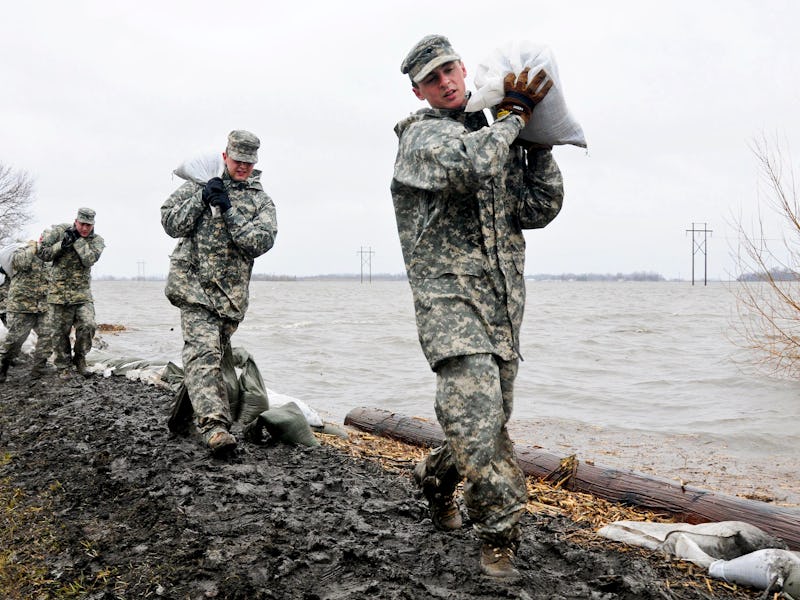Military Leaders Urge Trump to Take Climate Change Seriously
Global warming poses "immediate risks to national security."

A group of non-partisan military leaders and security experts have sent President-elect Donald Trump’s transition team a document urging the next administration to take climate change seriously as a threat to domestic and international security.
The Climate and Security Advisory Group released its briefing book for the new administration in September. “The national security community has focused on the intersection of climate risk and security for over a decade,” says retired U.S. Navy Rear Admiral David Titley said in a statement. “The conclusions are clear: climate risks are accelerating in their likelihood and severity. The next administration, whomever is elected, has the duty and obligation as Commander in Chief to manage this risk in a comprehensive manner.”
The advisory group calls for strong leadership in and between federal departments, including a new cabinet-level position on climate security. “According to the Department of Defense’s 2014 Climate Change Adaptation Roadmap, climate change poses ‘immediate risks to national security,’” the group writes. “These rapid changes in the climate are already exacerbating natural disasters, water, food, energy and health insecurities, contributing to conditions that can lead to conflict, state instability, and state failure, straining military readiness, operations and strategy, and making existing security threats worse.”
The briefing book will get into the hands of Trump’s transition team; whether or not it is taken seriously — or even read — is a different matter. Trump’s lead on the transition of the Environmental Protection Agency is a prominent climate change denier, and the president-elect himself has called climate change a hoax and vowed to pull the United States from the United Nations’ Paris Agreement on climate change action.
However, there’s evidence that Donald Trump is opportunistic, rather than ideological, on the issue of global warming. While he tried to block the installation of a wind farm in view of one of his golf courses, he cited the urgency of climate change in an appeal to protect another against rising tides and increasingly severe storms.
Despite the rhetoric from some within the GOP, climate change is increasingly a bipartisan issue. The science — that the climate is warming and fossil fuel burning is primarily responsible — is settled. Climate change is already forcing low-lying communities away from their homes, including in the United States.
Trump’s administration may succeed in ignoring climate change when it comes to regulating emissions, but he’ll have a harder time pretending that there will be no consequences for national security and economic interests.